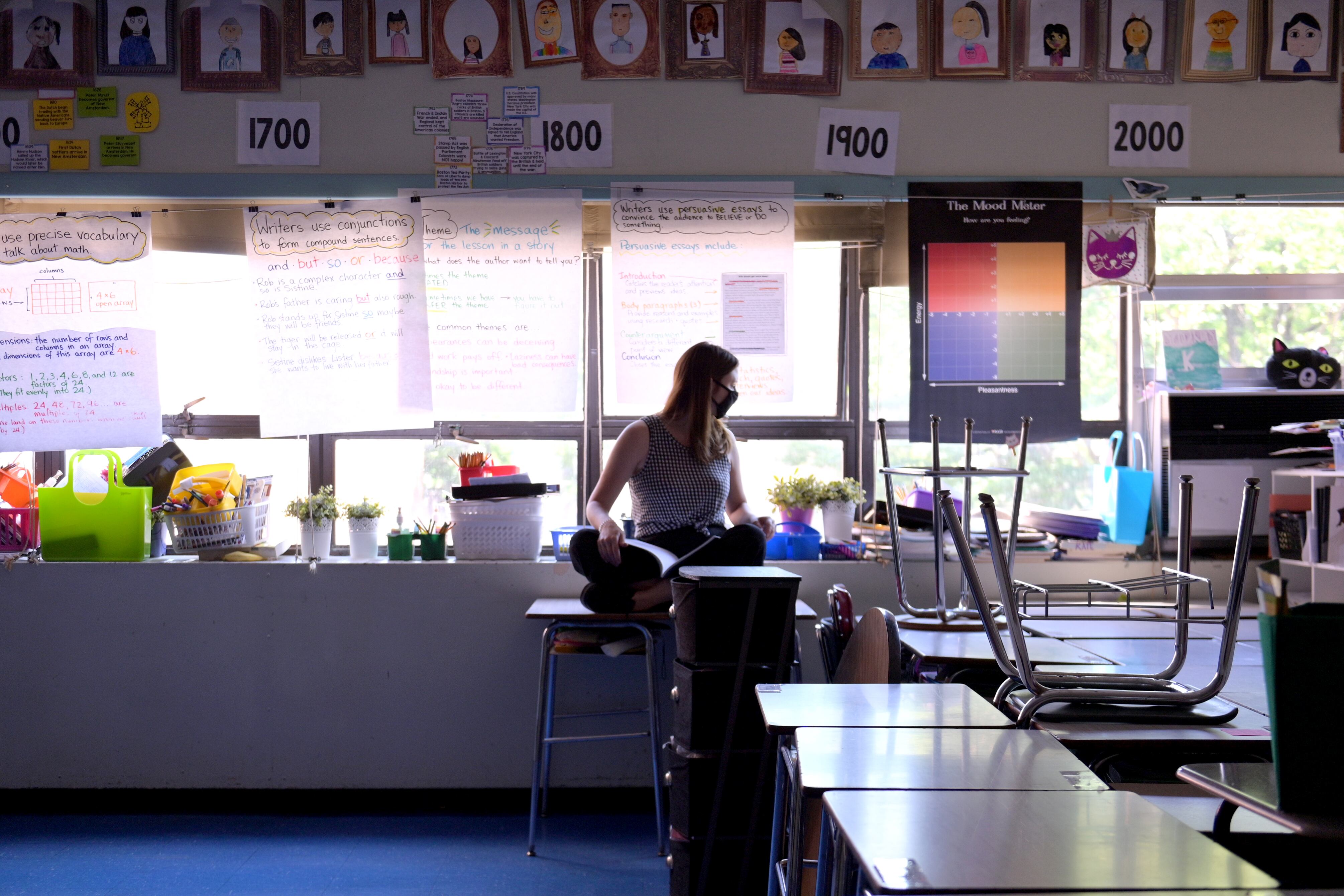Nearly 200 education researchers, including some who disagree fiercely on policy issues, have united around a set of recommendations for helping America’s schools navigate the current crisis.
The document highlights the widespread agreement among experts on what schools need at this moment, and offers a research-informed roadmap for policymakers looking to address the cascading effects of the pandemic on schools.
The biggest item on their agenda: more money from the federal government. The researchers say additional dollars are necessary to effectively realize many of their other ideas, including expanding internet access, avoiding teacher layoffs, and adding learning time for students.
“Most of the recommendations that follow will be difficult or impossible for schools to follow if they must transform what they do, yet with substantially fewer resources,” the letter reads.
The letter was originally signed by 16 education researchers. After it was published Wednesday, it drew an additional 160 signatures.
“Our sense was that there was wide agreement on most of the key pieces and priorities,” said Doug Harris, a Tulane University professor who was one of the letter’s organizers. “That was kind of remarkable, because in education that’s often not the case — the researchers are often in different places.”
In addition to more money, the researchers offer several other specific recommendations.
Schools should encourage student-teacher interaction, they write, and combine live classroom teaching with independent work. Virtual instruction, though, may be a particular challenge for young students. “This should be considered in deciding which students come back for in-person instruction (when public health conditions allow),” they write.
The researchers encourage policymakers to provide access to broadband and computers for all families, which will be essential if remote instruction continues. “While this is particularly important for addressing the current crisis, these resources can complement in-person instruction in the years ahead,” they write.
To make up for student learning loss, the researchers recommend adding instructional time, extending the school year, and providing small-group tutoring. All of these have some research backing, though would be expensive to implement. Tutoring in particular has proven particularly effective at boosting student learning, according to a recent overview of research.
The researchers also suggest what not to do: hold back a considerable number of students from moving on to the next grade, an idea generally not backed by existing research.
Finally, the researchers say if teacher layoffs are necessary, they should not be based on teacher seniority, a policy in some districts. Instead, the researchers say, layoffs should consider teacher performance and subject area, and districts should take care to ensure high-poverty schools aren’t disproportionately affected.
This was one of the most controversial topics the letter tackles. “That was the one we had to wordsmith the most,” said Katharine Strunk, a Michigan State University professor and the letter’s other chief organizer.
But, the researchers say, layoffs can be avoided if the federal government provides schools with a huge infusion of resources to make up for declining state and local budgets. New resources should be targeted to “those most in need,” including to students of color, students from low-income families, homeless students, and students with disabilities.
Here, Strunk said, “It was very easy to get some pretty quick consensus.” That was a reflection of schools’ obvious need and the growing research consensus that more money helps students, she said.
The letter avoids more fraught topics, including the public health implications of opening schools. The researchers emphasized that they’re not health experts, and that schools should listen to those who are.
Also not mentioned: school choice issues, including charter schools and tuition vouchers for private schools. That might reflect disagreement among the group’s original signers.
They include Wayne Lewis, dean of Belmont University’s school of education and the former Kentucky education commissioner who promoted the creation of charter schools in the state; Marty West, a Harvard professor and editor-in-chief of Education Next, which is generally sympathetic to school choice; Linda Darling-Hammond, head of the Learning Policy Institute, a progressive think tank, and the president of California state board of education; and Kevin Welner, a University of Colorado Boulder professor who runs the National Education Policy Center, a think tank often critical of charter schools.
“The only way to show that there is wide agreement is to get people who don’t usually agree to agree,” said Harris. “We sought out people who come at education from different perspectives … but who we also felt would come together in that spirit of cooperation.”





